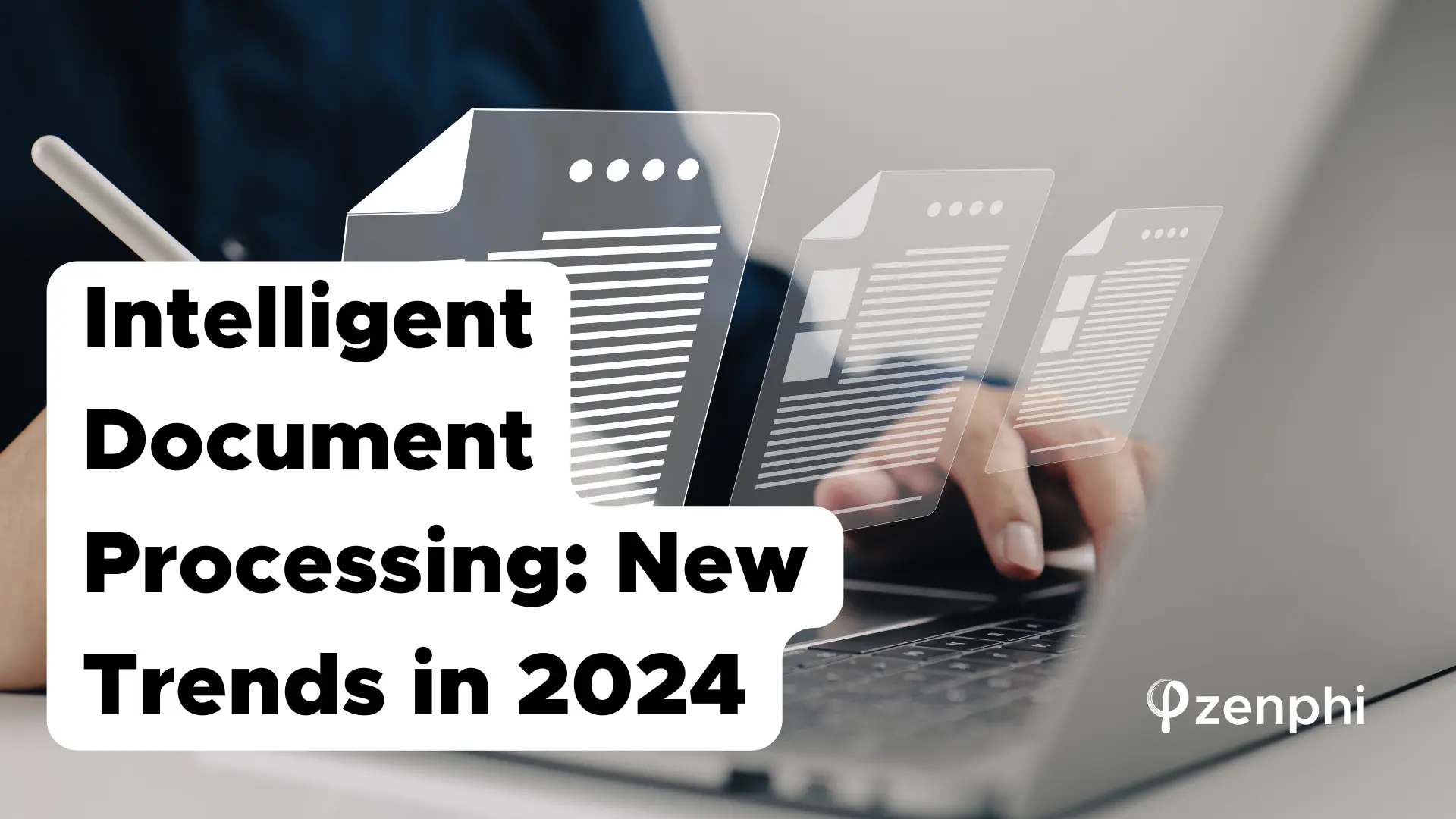How Intelligent document processing already changes businesses, assigning them new competitive advantages and how this technology helps to thrive in the times of turmoil.
Table of Contents
What is Intelligent document processing
Intelligent Document Processing (IDP) is an advanced technology that leverages artificial intelligence (AI) and machine learning (ML) to automate the extraction, classification, and processing of data from a variety of document types.
Unlike traditional document processing, which often requires manual data entry and validation, IDP utilizes cutting-edge techniques such as optical character recognition (OCR), natural language processing (NLP), and deep learning to accurately and efficiently handle complex documents. This technology transforms unstructured data into structured, actionable insights, enabling businesses to streamline their workflows, reduce errors, and improve operational efficiency.
Comparison Of Traditional Manual Document Processing & IDP
Intelligent Document Processing (IDP) visibly outperforms traditional document processing across several key metrics
IDP: Use cases in 2024
Invoice Processing
Automating the extraction of relevant data from invoices, such as vendor information, invoice numbers, amounts, and due dates for intelligent invoice processing.
Integrating with accounting systems for automatic updating of financial records and faster payment cycles.
Customer And Employees Onboarding
Processing and verifying customer or employee documents, including ID proofs, address verification documents, and application forms for efficient and speedy customer or new employee onboarding.
Enhancing the speed and accuracy of customer onboarding processes in banking, insurance, and other industries.
Claims Processing
Extracting and validating data from insurance claim forms, medical reports, and supporting documents for efficient claims processing.
Automating the adjudication process to expedite claim approvals and reduce manual review time.
Legal Document Management
Analyzing and categorizing legal documents such as contracts, agreements, and case files as a part of an accurate legal document management system.
Facilitating quick retrieval of relevant documents and insights for legal professionals.
Trend 1: Impact of Advancements in AI and Machine Learning on Intelligent Document Processing
Both AI and ML development we see in 2024 is impacting the way IDP is being developed. For example, OCT won’t be possible without AI. Natural Language Processing (NLP) is another crucial advancement. NLP algorithms enable IDP systems to understand and process human language, facilitating the extraction of meaningful information from unstructured data sources such as emails, reports, and legal documents. This capability is particularly beneficial in industries like finance, healthcare, and legal services, where the volume of unstructured data is substantial.
Finally, generative AI capabilities take IDP even further, adding a new step of generating documents and texts based on the data extracted at the previous stages of document-centric workflows.
Trend 2: Integration of IDP into Wider Business Processes
In 2024 IDP is increasingly being integrated into broader business processes rather than functioning as a standalone operation.
This shift creates a demand for comprehensive workflow automation across functions, such as building integrated invoice and accounts payable workflows in finance. Consequently, forward-looking companies are seeking holistic business process automation platfroms and solutions, like Zenphi, that offer end-to-end automation capabilities. These platforms enable seamless integration of IDP with other business processes, enhancing efficiency, accuracy, and operational scalability, moving beyond single-step automation tools to more robust, cohesive automation strategies.
Trend 3: Shift Towards Cloud-Based Solutions for Intelligent Document Processing
The shift towards cloud-based solutions for IDP marks a significant trend in the industry. Initially, companies attempted to manage IDP internally, but it soon became evident that internal resources could not match the advanced capabilities of dedicated cloud-based SaaS solutions. Platforms like UiPath, Rossum, Zenphi, and ABBYY offer sophisticated, scalable IDP functionalities that are challenging to replicate with internal teams, even with substantial investments in ML engineers.
These cloud-based solutions provide rapid deployment, continuous updates, and enhanced security, ensuring that businesses stay ahead in the technology curve without the burden of extensive in-house development. They leverage advanced AI and machine learning algorithms to deliver high accuracy and efficiency in document processing, far surpassing what most companies can achieve internally in the short term.
Moreover, cloud-based IDP democratizes access to cutting-edge technologies, enabling smaller businesses to utilize capabilities that were previously only available to large enterprises. This accessibility allows businesses of all sizes to streamline their document workflows, reduce operational costs, and improve data accuracy and compliance. The shift to cloud-based IDP solutions is thus driving a more inclusive and efficient landscape for document processing across various industries.
Cloud-Based IDP Solutions Vs In-House
Capabilities provided by cloud-based IDP solutions versus those achieved by building an in-house solution are much wider
Trend 4: Focus on Data Security and Compliance
The shift to cloud-based IDP solutions amplifies the need for robust data security and compliance measures. As businesses increasingly rely on third-party providers for IDP, protecting sensitive information and preventing data leaks become paramount.
The most obvious action to take in this context is to select reputable providers with a strong focus on data security and compliance from the outset.
For instance, Zenphi, the only dedicated Intelligent Document Processing solution for Google Workspace, offers advanced features like OCR, unstructured data extraction, and generative AI at more affordable rates compared to enterprise-level solutions. Moreover, Zenphi ensures complete security by keeping data within the familiar Google Workspace environment, minimizing the risk of data breaches. This approach not only provides access to state-of-the-art IDP capabilities but also guarantees that sensitive information remains secure, thus maintaining compliance with regulatory standards and safeguarding business integrity.
Ready to change your manual document processing into set-and-forget workflows? If you use Google Workspace in your business you can easily do it today! Reach out to Zenphi experts and let us help you tailor your document-centric workflows to achieve maximum efficiency and cut opertional costs.







